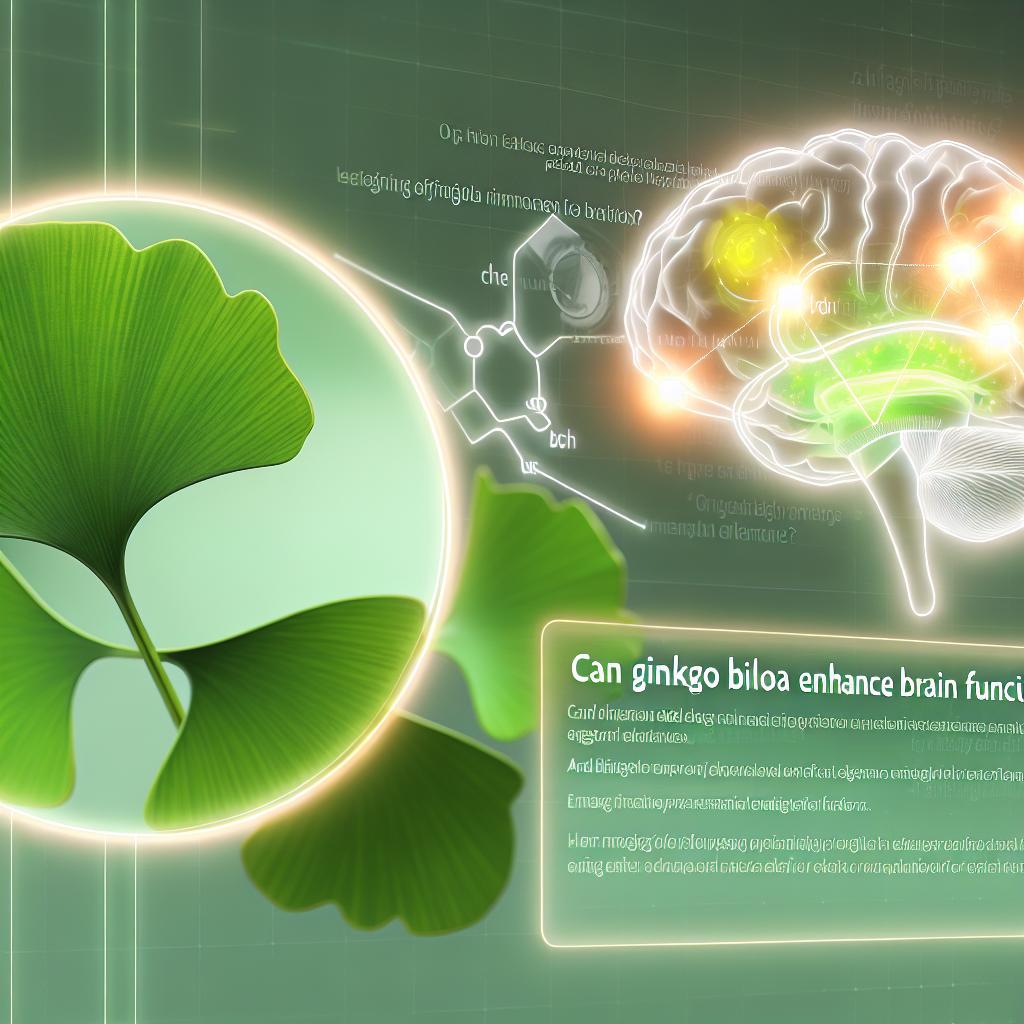Understanding Ginkgo biloba
Ginkgo biloba, commonly referred to as simply ginkgo, is a notable tree species originally hailing from China. With a cultivation history spanning thousands of years, this tree is widely recognized for its distinctive fan-shaped leaves, which have sparked a longstanding interest due to their unique appearance and potential health applications. The ginkgo tree has gained popularity particularly because of its proposed health benefits, most prominently its ability to enhance brain function. The leaves of the ginkgo tree are utilized to extract compounds that are said to offer cognitive support, which has led to their widespread use as a dietary supplement.
The Active Components
Ginkgo biloba is rich in several active constituents, the most significant of which are flavonoids and terpenoids. These compounds are believed to possess antioxidant properties, which play a crucial role in countering oxidative stress. Oxidative stress is a physiological phenomenon that occurs when there is an imbalance between the production of free radicals and the body’s ability to neutralize their harmful effects via antioxidants. By combatting oxidative damage, flavonoids and terpenoids may contribute to the maintenance of cognitive health, which is a key reason researchers are intrigued by ginkgo’s potential to support brain function.
Mechanisms of Action
One proposed mechanism by which ginkgo may enhance cognitive function is through its effects on blood circulation. Research has suggested that ginkgo biloba may improve blood flow, particularly in the brain, an action that could underpin improvements in cognitive performance. Enhanced cerebral circulation might lead to increased delivery of oxygen and essential nutrients to brain cells, promoting their optimal function.
Besides affecting blood flow, ginkgo biloba may also exert an influence on neurotransmitter activity. Neurotransmitters are chemicals that facilitate communication between nerve cells and are integral to many mental processes, including memory and attention. By modulating neurotransmitter activity, ginkgo could potentially impact these cognitive functions, although the precise mechanisms remain a focus of ongoing research.
Research on Ginkgo biloba and Brain Function
The research landscape concerning the effectiveness of ginkgo biloba in enhancing brain function is characterized by mixed findings. While some studies have reported positive outcomes, others have failed to demonstrate significant effects. Numerous clinical trials have explored ginkgo’s potential cognitive benefits, with particular attention given to older adults and individuals experiencing cognitive impairments, such as those with mild cognitive decline or neurological conditions.
Potential Benefits
Evidence from certain studies suggests that ginkgo biloba might have a modest but beneficial impact on cognition, particularly in individuals facing age-related cognitive challenges. Improvements have been documented in areas such as memory, executive function, and attention among those taking ginkgo supplements. These findings have fueled interest in ginkgo as a potential aid for mitigating some aspects of cognitive decline associated with aging.
Inconclusive Evidence for Healthy Adults
In contrast to findings in populations with cognitive impairments, the evidence supporting significant cognitive enhancement for healthy adults using ginkgo biloba is less conclusive. Many investigations have reported insufficient improvements in memory or cognitive abilities in younger, healthy individuals. Consequently, the status of ginkgo biloba as an effective nootropic supplement—substances reputed to enhance cognitive function—is still debated within the scientific community.
Considerations and Precautions
Incorporating any supplement into one’s regimen necessitates careful consideration of potential side effects and interactions. Ginkgo biloba is generally considered safe when used appropriately; however, it is not devoid of side effects. Some individuals may experience adverse reactions such as headaches, gastrointestinal discomfort, or allergic skin responses. Of particular concern is ginkgo’s possible interaction with anticoagulant medications, as it could enhance the risk of bleeding.
Consulting a Healthcare Provider
Given the nuanced evidence regarding ginkgo biloba’s cognitive benefits and the possibility of adverse effects, it is prudent for individuals contemplating its use for cognitive enhancement to seek advice from a healthcare provider. Medical professionals can offer tailored guidance that considers one’s holistic health, encompassing factors such as medical history, current medications, and overall health status.
Conclusion
Ginkgo biloba remains a widely favored option among individuals aiming to bolster brain function, though its efficacy appears varied across different people and demographic groups. While certain studies underscore potential cognitive benefits, particularly among older adults or those with cognitive impairments, additional research is required to thoroughly elucidate its impact on healthy brain function. For those interested in exploring ginkgo biloba’s potential, undertaking an informed approach that includes consultation with a healthcare provider is strongly advised. Such a strategy can help ensure safe use and optimize any potential benefits.

